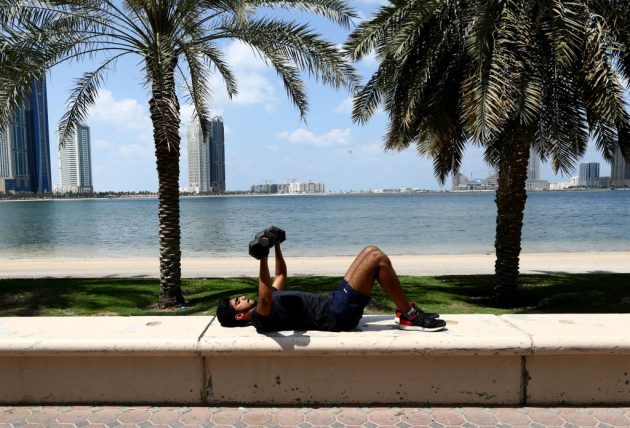Under the influence: How reality stars’ Dubai trips could sink social media marketing

While online fitness guru Sheridan Mordew has undoubtedly succeeded at influencing people, she may be struggling to make friends.
When the social media influencer, who posts workout videos for her thousands of online followers, insisted that her much-documented trip to Dubai was essential business travel, she was met with little sympathy. In fact, Mordew is one of a number of online personalities, including stars of Love Island, Geordie Shore and The Only Way is Essex, to come under fire in recent weeks for their lockdown jet setting to the middle eastern city-state.
For many influencers, the controversy will be the first taste of scrutiny under the public gaze. Beyond the backlash, however, the saga threatens to scupper the growth of a nascent sub-section of marketing, and creates a dilemma for brands hoping to cash in on the rise of so-called content creators.
‘Tone-deaf’ travelling
Advocates of influencer marketing have long argued that its value lies in authenticity and relatable content — qualities that can build brand trust and drive purchases more effectively than traditional advertising methods.
Alexander Frolov, chief executive and co-founder of social media verification platform Hype Auditor, describes influencer marketing as “one of the most effective methods to bridge the gap between a brand and its audience”.

Yet for many Brits, influencers’ decision to flaunt extravagant trips to Dubai while most people remained locked down at home shows a wild misjudgement of the public mood.
In addition to a public backlash on social media, influencers are facing criticism from within the marketing industry.
Influencer marketing advisor Scott Guthrie describes the stars’ actions as “tone deaf”, adding that they had “taken advantage” of government policy.
“Legally they may be fine, but they’ve failed the smell test with their audience base,” he says. “By posting to the gram from pool-side sun loungers they’ve shown themselves to be tone deaf, lacking skill and understanding of audience and content sentiment.”
Cashing in on Covid
Influencer marketing has been no stranger to controversy over its short lifetime, with the nascent ad format courting criticism from consumers and brands alike.
In 2019 UK regulators launched a crackdown on the sector amid complaints social media celebrities were failing to label their posts as adverts and risked misleading consumers. Revelations about the number of fake followers on popular profiles also sparked concerns that brands were wasting their ad spend.

Despite this, the outbreak of Covid-19 last year offered the chance to rebuild trust between advertisers and social media creatives, and to drag the often-derided marketing category into the mainstream.
Social media usage has surged over the past 12 months, with global lockdowns driving an increase in views and clicks on sponsored posts. For brands unable to shoot professional ad campaigns, influencer marketing has provided a cheap and effective alternative.
Ecommerce retailers — which rely heavily on influencer marketing — have also emerged as winners from the pandemic, enjoying a huge rise in sales at the expense of the high street. Boohoo’s takeover of the Debenhams brand and ongoing talks over a deal between Asos and Philip Green’s Arcadia empire suggest this trend will only accelerate.
Then, in November, it emerged that NHS bosses were drawing up plans to use influencers to promote uptake of the vaccine, providing a much-needed dose of legitimacy for the sector.

Building back trust
But the latest scandal risks scuppering this progress. Following a fierce backlash over her actions, fitness influencer Mordew has made her Instagram private, meaning only approved followers can view her posts.
Moreover, the saga could also spark a reckoning for brands, whose reputation is staked on the actions of their partner influencers.
Richard Exon, founder of ad agency Joint, says the long-term impact on the sector is hard to determine.
“One event in isolation doesn’t create much damage either way, but if a pattern of behaviour emerges it could be more substantive,” he says.
One issue is the growing separation between authentic influencers who have grown a dedicated following and the flash-in-the-pan success of Love Islanders, who acquire sudden online celebrity.
Guthrie dubs the reality TV stars “banjo” influencers due to their willingness to “bang another influencer job out”, adding that they lack “due care for either their online followers or the sponsoring brand”.
Ensuring advertisers are aware of the distinction between these different categories of social media star could, therefore, be the key to building trust.
Regardless of the negative press, however, industry professionals remain confident that influencer marketing provides an effective tool for brands trying to reach new audiences.
“Despite a few high-profile [negative] cases and despite the dark areas of the web, social media is full of skilful people who previously wouldn’t have had attention…. and this is very appealing to businesses,” says Exon.